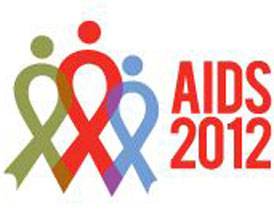
Pushing HIV Criminalization to Center Stage
Blog Search
Someone recently described the International AIDS Conference (IAC) to me as a “three-ring circus,” but that doesn’t really do it justice. It is more like a 15-ring circus—one with 25,000 participants who serve as both the performers and the audience, depending on where the spotlights are being shined at any given moment.
Between the plenary sessions, the concurrent sessions, the special sessions, the oral poster discussions, the poster exhibitions, the satellite events, the affiliated events, the “related” events and the many activities and programs of the Global Village (not to mention the after-hours socializing, a subject perhaps best saved for a different blog post—or my Facebook page), one’s attention is constantly pulled in dozens of different directions. I am grateful someone finally pointed out to me yesterday that there is actually an app to help set one’s agenda each day!
One subject I thought would be merely a sideshow at this “circus,” but has been front and center more often than expected, is HIV criminalization. I came to town early to facilitate a session at an all-day convening put together by the Positive Justice Project (PJP), a coalition of HIV advocates—including Lambda Legal—focused on the problem of HIV criminalization in the United States.
At Lambda Legal, we have long recognized the importance of fighting against criminal prosecutions for otherwise lawful conduct—or penalty enhancements for unlawful conduct—based solely on a person’s HIV status. Our HIV Project has recently stepped up its efforts in this area, including our work in the Plunkett and Rhoades cases. What has been fascinating to see at this conference is the growing national and international consensus on this subject, and the way that opposition to these laws has woven itself into the fabric of this gathering.
In addition to the PJP’s consensus statement released this week and endorsed by Lambda Legal, and growing support for the REPEAL Act introduced in Congress last year by Rep. Barbara Lee of California, the United Nations recently released the report of its Global Commission on HIV and the Law. The report strongly condemned the use of the criminal law except in the case of intentional and actual transmission of HIV.
The conference has included multiple sessions related to the subject of HIV criminalization. Yesterday there was a press conference to draw the world media’s attention to the subject (featuring Lambda Legal client Nick Rhoades), and Tuesday’s march to the White House had decriminalization as one of its five focus messages.
Not that the White House doesn’t already understand the importance of reducing stigma and discrimination in fighting the HIV/AIDS epidemic and the role that reforming our criminalization laws must play in that effort. In fact, a call for review and reform of HIV criminalization laws across the U.S.—to reflect current scientific knowledge about HIV, sound public health policy and a contemporary understanding of human rights—is already part of the National HIV/AIDS Strategy issued by the Obama Administration two years ago.
The trick now will be to get this message out to the broader public and the (mostly state) legislators and policymakers who can actually change these laws. With the growing consensus of global public health officials on the need for decriminalization of HIV status, let us hope that the promise contained in the National HIV/AIDS Strategy turns into full-throated support for repeal and/or reform of these laws from the Obama Administration and the Centers for Disease Control and Prevention. Though it is no small undertaking, together we can make this happen—and Lambda Legal will be in the fight until the last unjust HIV criminalization law is wiped off the books forever.
Read Scott Schoettes earlier blog post from the International AIDS Conference.




